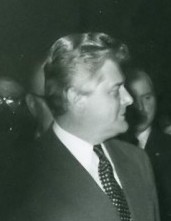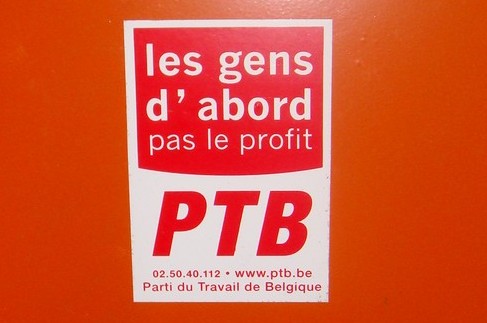|
1974 Belgian General Election
General elections were held in Belgium on 10 March 1974. The Belgian Socialist Party emerged as the largest faction in the Belgian Chamber of Representatives, Chamber of Representatives with 59 of the 212 seats. Voter turnout was 90.3%.Nohlen & Stöver, p291 Elections were also held for the nine provincial councils, as well as for the Council of the German Cultural Community for the first time. Results Chamber of Representatives Senate Council of the German Cultural Community In this election, the new Council of the German Cultural Community (''Rat der deutschen Kulturgemeinschaft'') was directly elected for the first time; members of the council had been appointed a year earlier. The council is the precursor to the Parliament of the German-speaking Community. References {{Belgian elections 1974 elections in Belgium March 1974 events in Europe ... [...More Info...] [...Related Items...] OR: [Wikipedia] [Google] [Baidu] |
Chamber Of Representatives (Belgium)
The Chamber of Representatives (Dutch: , french: link=no, Chambre des représentants, german: link=no, Abgeordnetenkammer) is one of the two chambers in the bicameral Federal Parliament of Belgium, the other being the Senate. It is considered to be the " lower house" of the Federal Parliament. Members and elections Article 62 of the Belgian Constitution fixes the number of seats in the Chamber of Representatives at 150. There are 11 electoral districts, which correspond with the ten Provinces (five Dutch- and five French-speaking) and the Brussels-Capital Region. Prior to the sixth Belgian state reform, the province of Flemish Brabant was divided into two electoral districts: one for Leuven and the other, named Brussels-Halle-Vilvoorde (BHV), which encompassed both the 19 bilingual municipalities from the Brussels-Capital Region and the 35 Dutch-speaking municipalities of Halle-Vilvoorde in Flemish Brabant, including seven municipalities with linguistic facilities for French-spe ... [...More Info...] [...Related Items...] OR: [Wikipedia] [Google] [Baidu] |
Dieter Nohlen
Dieter Nohlen (born 6 November 1939) is a German academic and political scientist. He currently holds the position of Emeritus Professor of Political Science in the Faculty of Economic and Social Sciences of the University of Heidelberg. An expert on electoral system An electoral system or voting system is a set of rules that determine how elections and referendums are conducted and how their results are determined. Electoral systems are used in politics to elect governments, while non-political elections ma ...s and political development, he has published several books. IDEA Bibliography Books published by Nohlen include: *''Electoral systems of the world'' (in German, 1978) *''Lexicon of politics'' (seven volumes) *''Elections and Electoral Systems'' (1996) *''Electi ...[...More Info...] [...Related Items...] OR: [Wikipedia] [Google] [Baidu] |
Belgium Senate 1974
Belgium, ; french: Belgique ; german: Belgien officially the Kingdom of Belgium, is a country in Northwestern Europe. The country is bordered by the Netherlands to the north, Germany to the east, Luxembourg to the southeast, France to the southwest, and the North Sea to the northwest. It covers an area of and has a population of more than 11.5 million, making it the 22nd most densely populated country in the world and the 6th most densely populated country in Europe, with a density of . Belgium is part of an area known as the Low Countries, historically a somewhat larger region than the Benelux group of states, as it also included parts of northern France. The capital and largest city is Brussels; other major cities are Antwerp, Ghent, Charleroi, Liège, Bruges, Namur, and Leuven. Belgium is a sovereign state and a federal constitutional monarchy with a parliamentary system. Its institutional organization is complex and is structured on both regional and lingui ... [...More Info...] [...Related Items...] OR: [Wikipedia] [Google] [Baidu] |
Party Of German-speaking Belgians
The Party of German-speaking Belgians (german: Partei der Deutschsprachigen Belgier, PDB) was a regionalist political party active in the German-speaking Community of Belgium founded in 1971. The party was a founder member of the European Free Alliance in 1981. The party has been accused of supporting irredentism and was involved in a scandal surrounding which itself had ties to far-right Far-right politics, also referred to as the extreme right or right-wing extremism, are political beliefs and actions further to the right of the left–right political spectrum than the standard political right, particularly in terms of being ... groups. In 2008 the party was succeeded by ProDG. References {{reflist Political parties in the German-speaking Community of Belgium 1971 establishments in Belgium 2008 disestablishments in Belgium Political parties established in 1971 Political parties disestablished in 2008 Defunct political parties in Belgium European Free Alliance ... [...More Info...] [...Related Items...] OR: [Wikipedia] [Google] [Baidu] |
Workers' Party Of Belgium
The Workers' Party of Belgium (french: Parti du Travail de Belgique, PTB; nl, Partij van de Arbeid van België, PVDA; ) is a Marxism, Marxist and Socialism, socialist political parties in Belgium, political party in Belgium. It is one of the few Belgian parties that is a fully national party, representing both Flanders and Wallonia. Having traditionally been a small party, the PTB-PVDA has gained momentum since the 2010s, continuously scoring better at the polls and elections, particularly in Wallonia and working-class communities in Brussels. History The Workers' Party of Belgium originated in the student movement at the end of the 1960s. Students (organized in the student union ''SVB'' - ''Studenten VakBeweging''), mainly from the Catholic University of Leuven (1834–1968), Catholic University of Leuven, turned towards the working-class movement. They considered the politics of the existing Communist Party of Belgium Marxist revisionism, revisionist, i.e. too much turned to ... [...More Info...] [...Related Items...] OR: [Wikipedia] [Google] [Baidu] |
Democratic And Progressive Union
Democrat, Democrats, or Democratic may refer to: Politics *A proponent of democracy, or democratic government; a form of government involving rule by the people. *A member of a Democratic Party: **Democratic Party (United States) (D) **Democratic Party (Cyprus) (DCY) ** Democratic Party (Japan) (DP) **Democratic Party (Italy) (PD) **Democratic Party (Hong Kong) (DPHK) **Democratic Progressive Party (DPP) **Democratic Party of Korea **Democratic Party (other), for a full list *A member of a Democrat Party (other) *A member of a Democracy Party (other) *Australian Democrats, a political party *Democrats (Brazil), a political party *Democrats (Chile), a political party * Democrats (Croatia), a political party * Democrats (Gothenburg political party), in the city of Gothenburg, Sweden *Democrats (Greece), a political party *Democrats (Greenland), a political party *Sweden Democrats, a political party * Supporters of political parties and democracy movements ... [...More Info...] [...Related Items...] OR: [Wikipedia] [Google] [Baidu] |
Red Lions (political Party)
The Red Lions ( nl, Rode Leeuwen) was a political party in Belgium. History The party first contested national elections in 1968,Red Lion Belgian Elections but failed to secure a seat after winning less than 1% of the vote. In the 1971 general elections it received 2% of the national vote and won four seats in the Chamber of Representatives. In the Senate elections it allied with the Belgian Socialist Party ...
[...More Info...] [...Related Items...] OR: [Wikipedia] [Google] [Baidu] |
Communist Party Of Belgium
french: Parti Communiste de Belgique , abbreviation = KPB-PCB , colorcode = , leader1_title = Historical leaders , leader1_name = Joseph JacquemotteJulien LahautLouis Van Geyt , founder = Julien Lahaut , founded = , dissolved = , merger = Communist PartyBelgian Communist Party , successor = Kommunistische Partij Parti Communiste , headquarters = Brussels , newspaper = ''De Roode Vaan'' (Flemish)''Le Drapeau Rouge'' (French) , youth_wing = Communist Youth of Belgium , wing1_title = Paramilitary wing , wing1 = Partisans Armés (1940-43) , membership_year = 1965 , membership = 11,000 (peak) , ideology = CommunismEurocommunism , position = Far-left , international = Comintern (1919–1943)Cominform (1947–1956) , european = , europarl = Communist and Allies Group (1973–1989) , colours = Red , country = Belgium The Communist Party of Belgium ( nl, Kommunistische Partij van België, or KPB; french: Parti Communiste de Belgique, PCB) was a political party ... [...More Info...] [...Related Items...] OR: [Wikipedia] [Google] [Baidu] |
Walloon Rally
The Walloon Rally (french: Rassemblement wallon; RW) is a regionalist political party in Belgium, active in Wallonia since 1968. The party favoured federalism and since 1985 independence. Founded on 7 March 1968, the party contested the Belgian general election of 1968 in a coalition with the FDF, a Brussels-based francophone political party, receiving 5.9% of the vote nationally. The party's own results in elections to the Belgian Federal Parliament were as follows. The increasing federalisation of Belgium, and the adoption of some of the party's policies by the traditional francophone parties, resulted in a sharp decline in electoral support from 1977 onwards. A split in the early 1980s created the Walloon Popular Rally, a more left-wing grouping, which later merged with the Socialist Party. The Wallonia-France Rally, which supports the union of Wallonia and France, was formed by the rump of the party's membership in 1999. Afterwards, the Walloon Rally left the WFR and ... [...More Info...] [...Related Items...] OR: [Wikipedia] [Google] [Baidu] |
Liberal Democrat And Pluralist Party
Liberal or liberalism may refer to: Politics * a supporter of liberalism ** Liberalism by country * an adherent of a Liberal Party * Liberalism (international relations) * Sexually liberal feminism * Social liberalism Arts, entertainment and media * ''El Liberal'', a Spanish newspaper published 1879–1936 * ''The Liberal'', a British political magazine published 2004–2012 * ''Liberalism'' (book), a 1927 book by Ludwig von Mises * "Liberal", a song by Band-Maid from the 2019 album '' Conqueror'' Places in the United States * Liberal, Indiana * Liberal, Kansas * Liberal, Missouri * Liberal, Oregon Religion * Religious liberalism * Liberal Christianity * Liberalism and progressivism within Islam * Liberal Judaism (other) See also * * * Liberal arts (other) * Neoliberalism, a political-economic philosophy * The Liberal Wars The Liberal Wars (), also known as the Portuguese Civil War (), the War of the Two Brothers () or Miguelite War (), was a war bet ... [...More Info...] [...Related Items...] OR: [Wikipedia] [Google] [Baidu] |
DéFI
DéFI () is a social-liberal, liberal, regionalist political party in Belgium mainly known for defending French-speakers’ interests in and near the Brussels region. The party is led by François de Smet, a member of the Chamber of Representatives. The party's current name, ''DéFI'' or ''Défi'', was adopted in 2016 and is a backronym of ''Démocrate, Fédéraliste, Indépendant'' (literally, "Democratic, Federalist, Independent") meaning "challenge" in French. History The party was founded as the Democratic Front of Francophones (''Front Démocratique des Francophones'', FDF) on 11 May 1964 as a response to the language laws of 1962. The party had instant success in Brussels: it first contested parliamentary elections one year later, where it won one senator and 3 seats in the Chamber of Representatives for the constituency of Brussels. Its number of seats increased further in the subsequent parliamentary elections. The party also dominated Brussels' municipal politics u ... [...More Info...] [...Related Items...] OR: [Wikipedia] [Google] [Baidu] |
Humanist Democratic Centre
Humanist Democratic Centre (french: Centre Démocrate Humaniste, CDH) was a Christian democratic and centrist French-speaking political party in Belgium. The party originated in the split in 1972 of the unitary Christian Social Party (PSC-CVP) which had been the country's governing party for much of the post-war period. It continued to be called the Christian Social Party (french: Parti Social Chrétien, PSC) until 2002 when it was renamed the Humanist Democratic Centre. It was refounded as Les Engagés in 2022. History The PSC was officially founded in 1972. The foundation was the result of the split of the unitary Christian Social Party (PSC-CVP) into the Dutch-speaking Christian People's Party (CVP) and the French-speaking Christian Social Party (PSC), following the increased linguistic tensions after the crisis at the Catholic University of Leuven in 1968. A similar split already happened in 1936 when the Catholic Bloc split into the dutchophone Catholic Flemish People' ... [...More Info...] [...Related Items...] OR: [Wikipedia] [Google] [Baidu] |



